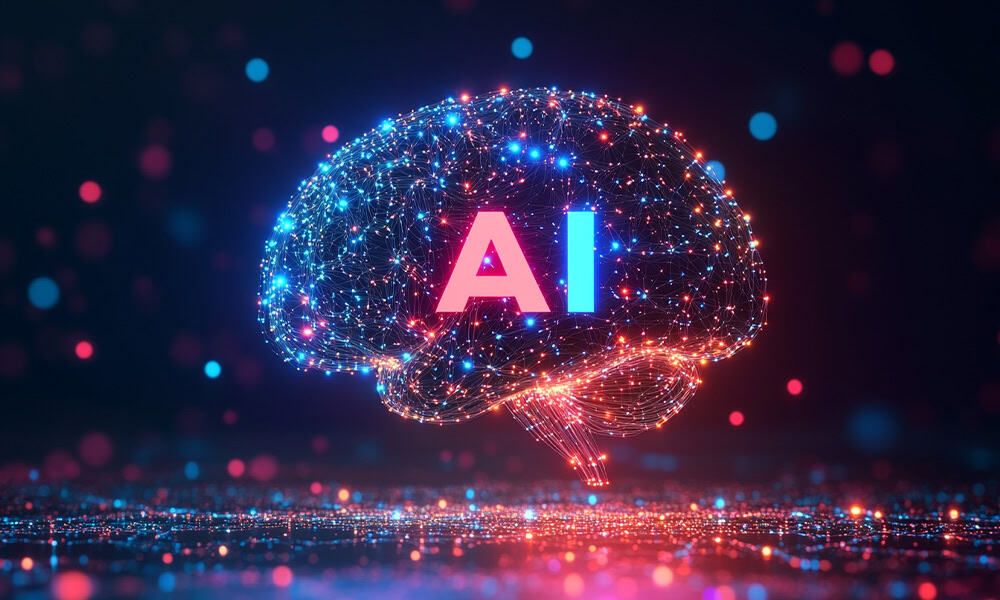The outlook for artificial intelligence in Latin America is promising, but the region still has low levels of training in this technology, says Google’s vice president for Spanish-speaking Latin America, Adriana Noreña, in an interview in Mexico.
Visiting the country for Google Mexico’s 20th anniversary, Noreña laid out the company’s plans to develop AI in Latin America and her view on issues such as regulation and financial compensation for news outlets whose content feeds its tools.
What is the AI outlook in Latin America?
Studies on AI adoption in Latin America show that 48% of people and 56% of companies are using it. That is close to the United States—one or two percentage points difference—and similar to Europe.
An Ipsos study shows 70% of Latin Americans, particularly in Chile and Mexico, are very optimistic about the benefits it can bring. For AI to work it needs massive data, and there is a world of people here who will feed those tools. That is very encouraging.
What are the challenges?
A lack of training and of people ready to work with AI. The World Economic Forum says one in six workers will need to reskill by 2027. We have a striking talent shortage. We are making many efforts, such as Grow with Google, an initiative to train people that has awarded 88,000 scholarships in Latin America. In Mexico we are giving two million dollars to an NGO to train 60,000 students in vulnerable communities.
How do you address calls for greater regulation?
AI is so transformative that it cannot go unregulated, otherwise it can become a tool for harm. There needs to be a team with government and the private sector to create laws that aim for the best. We will always favor and protect privacy above all.
Seven of our platforms are used daily by 2 billion people. If we make mistakes, we affect those people’s lives. Our teams are working so regulation is robust and responsible but does not limit innovation.
How do you work with local organizations against disinformation?
First, we feed AI tools with what is good and what is not so they can do fact-checking automatically. From day one our goal was for Search to bring reliable information.
In Mexico we launched AI Mode for searches in Spanish. It produces summaries that cite sources already checked by Google’s AI engines. We collaborate with entities such as AFP to help supply that information.
What do you do to compensate media whose content feeds AI?
The number one asset is sending traffic to media, which is why links are included in search results. There are training programs to help outlets monetize through advertising, and we have partnerships with more than 2,800 media organizations worldwide so their journalists use the tools efficiently.
But users often stick with AI summaries and do not click through to media sites.
It has not been our observation that traffic has fallen; it has remained balanced. Searches are longer and more informed. Higher-quality traffic has been sent to those outlets.
What do you think of neighboring rights initiatives requiring platforms like Google to compensate media financially?
We believe our contribution is to send them traffic so they can grow and monetize their sites with advertising.
On allegations of an advertising monopoly, what does Google consider fair in the split?
First, users must be free to consult wherever they want and go to content they find relevant. Second, advertising must be good enough to deliver a return to the company. If a platform, Google’s or another’s, provides the return on investment a company needs, that is correct in my view.
Do you plan to build data centers, and what is the strategy to mitigate their environmental impact?
We have two in Latin America. One is nearly finished in Uruguay, and the other is in Quilicura, Chile. Our goal is for them to be self-sustaining and emissions-free very soon.
What do you do to prevent AI from perpetuating bias in a region with so much inequality?
There are multidisciplinary teams dedicated to testing these tools to ensure they do not contain biases. And we rely heavily on users to help us. There will probably be things we miss, but we will correct them.






